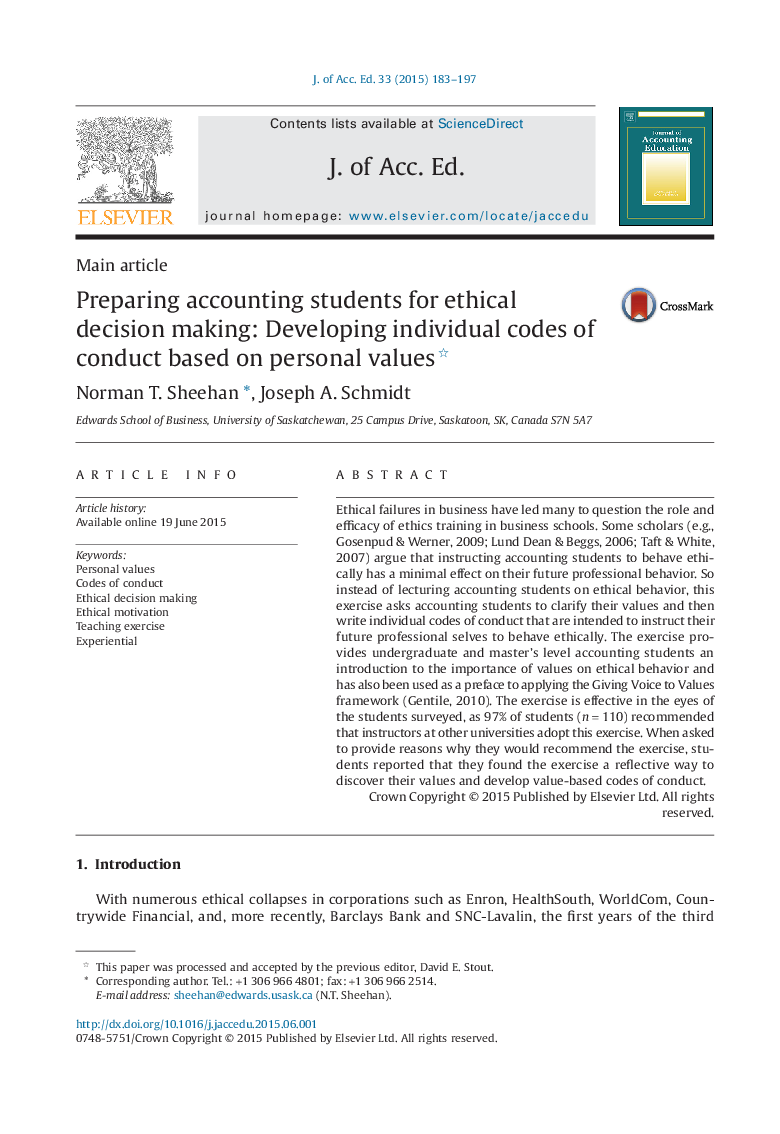| Article ID | Journal | Published Year | Pages | File Type |
|---|---|---|---|---|
| 359394 | Journal of Accounting Education | 2015 | 15 Pages |
•Understanding how to act in accordance with personal value systems, rather than rote knowledge of rules and regulations, may have a greater effect on students' ethical reasoning and behavior.•This experiential exercise asks students to identify their core values and then operationalize their core values by writing individual code of conduct.•Students are instructed to refer to their individual codes of conduct when facing situation requiring ethical judgment in their workplaces.•By increasing knowledge of students' personal values, the exercise deepens students' ethical sensitivity, improves students' knowledge of how to apply their values, and helps students understand why prioritizing personal values such as wealth or power may lead to poor ethical decisions.
Ethical failures in business have led many to question the role and efficacy of ethics training in business schools. Some scholars (e.g., Gosenpud & Werner, 2009; Lund Dean & Beggs, 2006; Taft & White, 2007) argue that instructing accounting students to behave ethically has a minimal effect on their future professional behavior. So instead of lecturing accounting students on ethical behavior, this exercise asks accounting students to clarify their values and then write individual codes of conduct that are intended to instruct their future professional selves to behave ethically. The exercise provides undergraduate and master's level accounting students an introduction to the importance of values on ethical behavior and has also been used as a preface to applying the Giving Voice to Values framework (Gentile, 2010). The exercise is effective in the eyes of the students surveyed, as 97% of students (n = 110) recommended that instructors at other universities adopt this exercise. When asked to provide reasons why they would recommend the exercise, students reported that they found the exercise a reflective way to discover their values and develop value-based codes of conduct.
